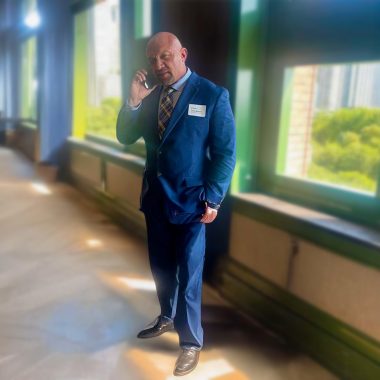Customer success leaders often wrestle with a tough question: how do you design strategies that can scale across diverse cultures yet still resonate at a local level? The truth is, there is no shortcut in the form of a universal playbook or a one-size-fits-all model. Drawing on years of experience building and scaling global customer success organizations, Keyonna LaGrone Taylor shows that the real solution lies in authentic leadership and a deep respect for cultural nuance. These qualities consistently prove more powerful than any tool or technology.
Building Customer Success That Actually Works Across Cultures
Many companies stumble in global customer success because they treat it like little more than a translation exercise. Taylor takes a very different view. She looks at the intersection of two forces: local culture and client culture. When teams expand across borders, these elements overlap in subtle but important ways. “When you’re scaling global teams, your clients also reside in multiple different areas. So there’s a convergence of the local culture and the client culture and where they live,” she explains. This dual perspective shapes how her teams approach relationships. Instead of relying on polished but generic communication, they adapt to the way clients actually speak and connect. For Taylor, cultural learning is not theoretical. She spends time in different regions to experience what clients encounter firsthand. She even organizes “secret shopper” exercises, where her team calls in under different personas to test responses. The result is insight grounded in reality, not assumptions, and a stronger foundation for trust.
Creating Leadership That Drives Results
The difference between inspiring a team and dictating to them shows up almost immediately in performance. Taylor has witnessed both styles in action, and the outcomes are worlds apart. “When you’re that type of leader (inspiring), they will tell you things that they know are not working on the ground, and they feel safe to tell it to you,” she explains. That sense of psychological safety becomes the real game-changer. Teams that feel free to share unfiltered feedback give leaders access to insights that can shift strategies and prevent costly mistakes. In contrast, command-and-control leadership creates silence, with problems buried until they surface as full-blown crises. Taylor also cautions against what she calls “fake psychological safety.” Leaders may claim to welcome honest input, but if they react defensively when feedback comes, the trust evaporates. “You can’t say one thing or claim to be one and then be another person. That’s always going to come out,” she notes. For her, authenticity is not optional. It is the foundation of trust.
Transforming Customer Success Beyond
Many organizations struggle to move customer success beyond a reactive support role. Taylor believes the first step is brutal honesty about the current state. “Take your team, sit down, and whether it’s a whiteboard or a digital board, do a customer journey map,” she advises. The exercise only works if teams approach it without rose-colored glasses. People need psychological safety to call out the real pain points in the customer experience. Once those problem areas are visible, Taylor recommends assigning clear accountability and tackling them systematically. Internal improvements, however, are only part of the process. She stresses the importance of validating changes directly with customers. “Ultimately, it’s your customer that matters. And once you get that feedback, once you’ve improved, then you can make small iterations that continue to refine it.” Without that external confirmation, teams are still making educated guesses instead of building real solutions.
Developing Teams That Deliver Results
For Taylor, team development begins with understanding people rather than implementing systems. She takes time to know her team members both personally and professionally, identifying strengths while coaching through challenges. Leaders, she believes, should show up authentically. “Your leadership should never feel perfect to the people that you’re leading, because you’re not. None of us are,” she says. This human approach creates what she calls “rich soil” for growth. When people feel valued and safe, they commit more deeply to the success of the company. The payoff is not only cultural but financial. Strong leadership drives productivity, improves retention, and reduces the high costs of turnover.
Taylor sees AI as a useful tool but cautions against adopting it without clear intention. She recommends using it to automate simple tasks, capture relationship details, and summarize calls so key points stand out. “Use it to summarize phone calls so that key points rise to the top and you know how to go into your next meeting,” she explains. Yet she is firm that relationship building remains human territory. “CS is still about building relationships and AI is not a relationship builder,” she emphasizes. The human element cannot be replaced, especially when it comes to listening to customers and acting on their feedback. Success, in her view, comes from using technology to enhance human connection rather than trying to substitute it.
Connect with Keyonna LaGrone Taylor on LinkedIn to explore her approach to scaling customer success globally.








